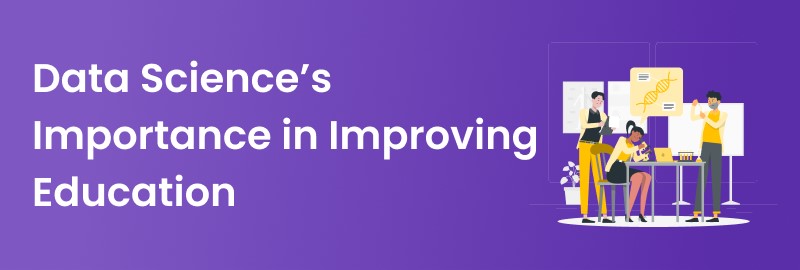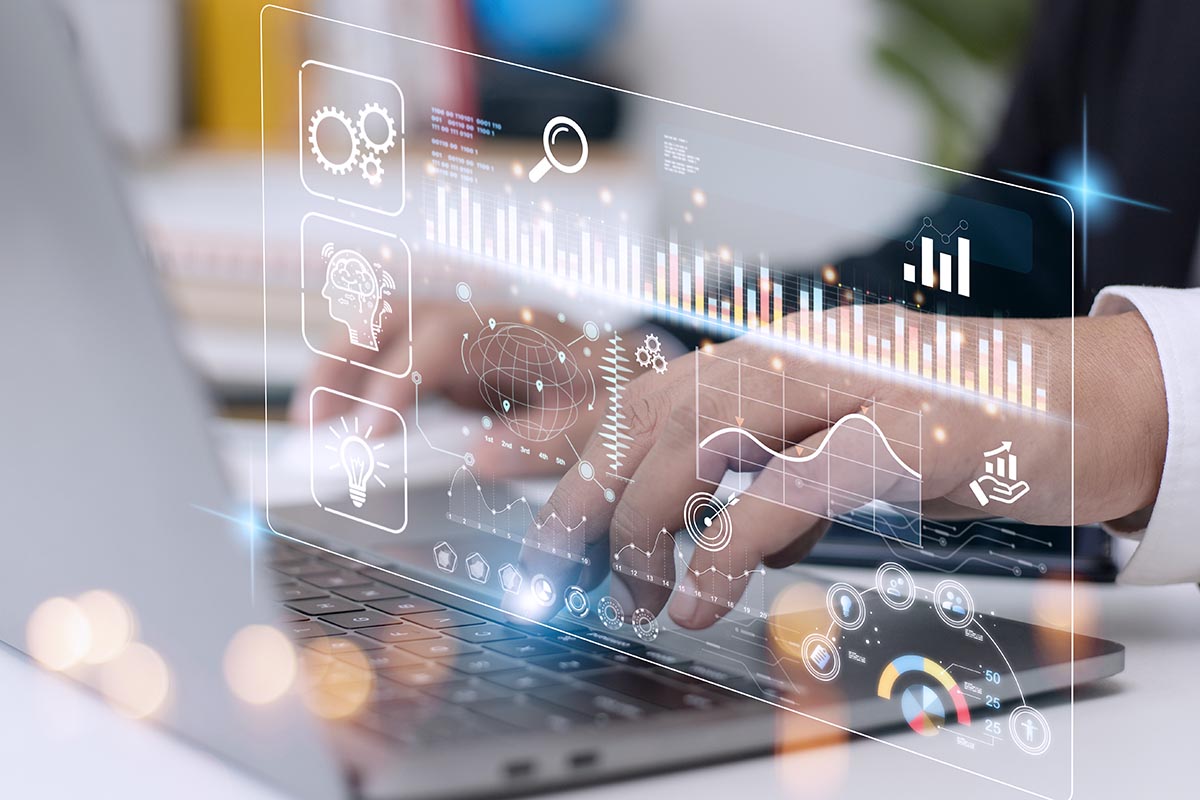Data science has become a revolutionary force in a fast-changing world across many industries. Education, a critical industry that affects how societies develop, has started to use data science to enhance teaching and learning outcomes.
Technology in education is not a new concept. Still, data science offers an approach by utilizing data-driven insights to personalize learning, improve pedagogy, and cater to the requirements of specific students. Data Science Training offers you the opportunity to learn data science.
This article examines the value of data science in education, emphasizing how it may empower teachers, encourage student participation, and advance prospects for equal access to education.
Personalized Learning
Personalized learning is an approach to education that recognizes individual learners’ unique needs, strengths, and interests. It goes beyond the traditional one-size-fits-all model and aims to tailor instruction to match each student’s learning style, pace, and preferences. The advent of data science has greatly accelerated the implementation and effectiveness of personalized learning in educational settings.
By harnessing the power of data analysis and technology, educators can gather vast amounts of information about student’s academic performance, learning behaviors, and progress. This data can generate valuable insights that inform instructional decisions, allowing teachers to design personalized learning paths for their students.
One of the key benefits of personalized learning is its ability to enhance student engagement. When students feel that their learning experiences are relevant, meaningful, and adapted to their needs, they are more likely to be motivated and actively participate in the learning process. By tailoring content, activities, and assessments to their interests and abilities, personalized learning fosters a sense of ownership and empowerment among students.
Furthermore, personalized learning enables students to learn at their own pace. In a traditional classroom, students are often expected to follow a predetermined timeline, which can result in some students feeling rushed or others feeling bored.
With personalized learning, students can progress through the material at a speed that is comfortable for them. This approach promotes deeper understanding, as students can spend more time on challenging concepts while moving quickly through familiar ones.
Data science also enables adaptive learning, where the learning experience adapts and adjusts based on real-time feedback from the student. Adaptive learning platforms use algorithms to analyze student responses and behaviors, providing immediate feedback and suggesting personalized resources or activities to address areas of weakness. This continuous feedback loop helps students stay on track, identify areas for improvement, and reinforce their learning in a targeted manner.
In addition to benefiting students, personalized learning also empowers educators. By leveraging data science, teachers can better understand each student’s progress, strengths, and areas of struggle. This knowledge allows them to differentiate instruction, provide targeted interventions, and offer personalized support to individual students.
Teachers can track student progress in real-time, identify early warning signs of academic challenges, and intervene proactively to prevent learning gaps from widening.
It is important to note that while data science plays a crucial role in facilitating personalized learning, it is not a substitute for the human connection between teachers and students. Educators remain instrumental in guiding and supporting students on their learning journeys. They use their professional judgment and expertise to interpret the data, make informed decisions, and create a supportive learning environment.
Enhancing Pedagogy
Enhancing pedagogy refers to improving the methods, strategies, and approaches used in teaching and instruction. It involves refining and innovating educational practices to create more effective and engaging student learning experiences. By leveraging various tools, techniques, and technologies, educators can enhance pedagogy in several ways:
- Active Learning: Active learning approaches emphasize student engagement and participation in the learning process. It incorporates activities, discussions, group work, and hands-on experiences into lessons. Educators can promote critical thinking, problem-solving, and collaboration among students by shifting from a passive learning model to an active one.
- Technology Integration: Integrating technology into pedagogy can greatly enhance teaching and learning experiences. Digital tools and resources, such as interactive whiteboards, educational apps, multimedia content, and online platforms, provide more interactive and personalized instruction opportunities. Technology also enables educators to gather real-time data on student progress and adapt their teaching strategies accordingly.
- Differentiated Instruction: Students have unique strengths, interests, and learning styles. Differentiated instruction involves tailoring teaching methods, materials, and assessments to meet individual student needs. By offering a variety of learning pathways and accommodating diverse learning styles, educators can ensure that all students have equal opportunities to succeed.
- Inquiry-Based Learning: Inquiry-based learning focuses on posing questions, conducting investigations, and exploring topics in-depth. Instead of relying solely on lecturing, educators encourage students to ask questions, seek answers, and actively construct knowledge. This approach fosters curiosity, critical thinking, and problem-solving skills, empowering students to become independent learners.
- Formative Assessment: Formative assessment involves gathering feedback and monitoring student progress throughout the learning process. It allows educators to identify areas of strength and areas needing improvement, enabling timely interventions and targeted support. By providing ongoing feedback and opportunities for reflection, formative assessment helps students take ownership of their learning and make necessary adjustments.
- Collaborative Learning: Collaborative learning promotes student cooperation, communication, and teamwork. Group projects, discussions, and peer-to-peer interactions encourage students to share ideas, support one another, and develop important interpersonal skills. Collaborative learning also fosters a sense of community and prepares students for real-world collaborative environments.
- Culturally Responsive Pedagogy: Culturally responsive pedagogy acknowledges and values students’ diverse backgrounds and experiences. It incorporates culturally relevant content, perspectives, and examples into the curriculum. Educators can enhance student engagement and promote a deeper understanding of different cultures and perspectives by creating inclusive and respectful learning environments.
Watch this Data Science Course video and master the field of Data Science.
Promoting Equity and Accessibility Improving education
Data science holds immense potential in promoting educational equity by addressing systemic disparities and enhancing accessibility. By analyzing data on student demographics, achievement, and access to resources, academic institutions can identify and bridge the existing gaps among different groups of learners.
Data-driven insights help in highlighting disparities in academic performance, graduation rates, and access to advanced courses, prompting educators and policymakers to take proactive measures to create a more equitable educational system.
Furthermore, data science facilitates the creation of personalized interventions and support systems for disadvantaged students. By leveraging predictive analytics, educators can identify early warning signs of academic struggles, allowing for timely interventions and targeted support. This proactive approach can help prevent the perpetuation of achievement gaps and promote equal opportunities for all students, regardless of their background or circumstances.
Moreover, data science can potentially enhance accessibility to education for learners with diverse needs. By analyzing data on learning preferences, accommodations, and assistive technologies, educators can develop tailored approaches to meet individual requirements. Whether it’s through adaptive learning platforms, personalized resources, or assistive technologies, data science can break down barriers and enable inclusive education for students with disabilities.





















